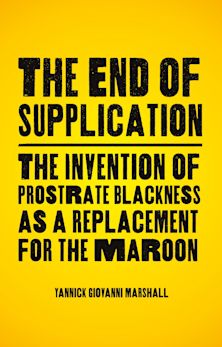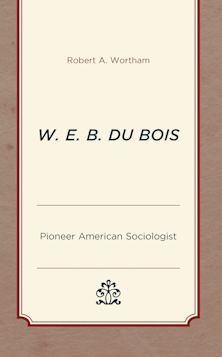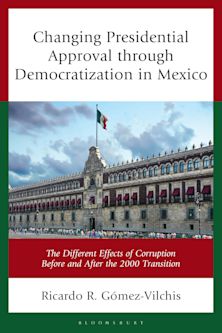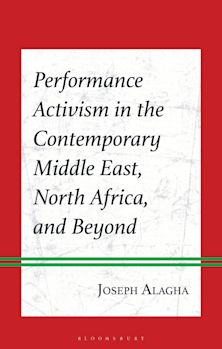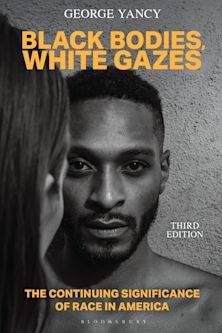- Home
- ACADEMIC
- Politics & International Relations
- Race and Ethnicity
- On Critical Postmedia and Korea
On Critical Postmedia and Korea
Philosophy, Technology, Literature
On Critical Postmedia and Korea
Philosophy, Technology, Literature
You must sign in to add this item to your wishlist. Please sign in or create an account
Description
On Critical Postmedia and Korea: Philosophy, Technology, Literature was curated for the simple reason that a shift has taken place in orientation towards the future. Not long ago, the West looked to Japan as charting a path to a new form of society, with a unique dynamic of media, economics, technology, culture, and politics. Yet, across the Sea of Japan, a phase change has occurred since the bursting of the economic bubble on the Japanese archipelago. Now, we look to South Korea for a new vision of the future and a fresh perspective on media and technology. A new era beckons—a Korean era! Therefore, it’s imperative to understand this gleaming model of hyper-accelerant advanced industrial capitalism and its soft and hard power effects. This collection thus embraces South Korea’s transformation, positioning it as a key architect of future societies.
Table of Contents
Jay Hetrick
Introduction
Joff P. N. Bradley
Chapter One: On the ‘Psychic Tourniquet’ sSrangling the Korean BwO
Joff P. N. Bradley
Chapter Two: Theorizing Asiatic Contradiction, UX of Contemporary Korean Literature
Ho-Duk Hwang
Chapter Three: The Perversity of Ethics and Hatred in Burning
Woosung Kang
Chapter Four: The Jargon of Asia: Toward the Possibility of Postcolonial Criticism in Korea
Hang Kim
Chapter Five: BTS and Global Capitalism
Alex Taek-Gwang Lee
Chapter Six: Out of Reach and Full of Risks: Perspectives on South Korean Young People’s Desire for Relationships
Grazia Milano
Chapter Seven: Theorizing the Invisible for the Media Industry Cryptology and the Unknown Inequality
Soo-Young Nam
Product details
| Published | Aug 08 2024 |
|---|---|
| Format | Ebook (Epub & Mobi) |
| Edition | 1st |
| Extent | 162 |
| ISBN | 9781666945454 |
| Imprint | Lexington Books |
| Illustrations | 4 Tables |
| Publisher | Bloomsbury Publishing |
About the contributors
Reviews
-
In their insightful critique of contemporary society's obsession with productivity and positivity, the authors skillfully navigate through intricate philosophical terrains, drawing on a diverse array of thinkers from Han Byung-Chul to Deleuze and Stiegler. Through meticulous analyses, the authors challenge the prevailing narratives surrounding desire, attention, and societal progress, urging readers to confront the existential crises of our time. Ultimately, this thought-provoking work serves as a clarion call for a radical reimagining of desire—one that embraces a deeper, more nuanced engagement with the self and the world.
Suji Park, Konkuk University, South Korea
-
This wide-ranging collection of essays examines post-media Korea through the lens of the profound thinkers Félix Guattari and Gilles Deleuze. Drawing on diverse references to philosophical concepts, artistic practices, and societal dynamics, this insightful collection is remarkable for its sincere and thoughtful investigation of the complexities of media, technology, and cultural transformation in the modern era.
Hyeyoung Maeng, California State University
-
On Critical Postmedia and Korea: Philosophy, Technology, Literature presents a compelling exploration of contemporary Korean culture, deftly navigating the intersections of philosophy, technology, and literature. Through diverse perspectives ranging from BTS's global impact to the intricacies of South Korean youth's relational desires, this book offers invaluable insights into the complexities of modern Korean society and its place in the global landscape.
Peter D. Matthews, Hanyang University, South Korea
-
Modern South Korea, with its hyper-individualism and techno-capitalism, is like nowhere else and everywhere else. In that sense, critical voices capable of shedding light on the relationship between media, power, and existentialism are necessary, and they should come from both within and without. Bradley is a self-confessed “native stranger” and that critical detachment, as well as a strong understanding of psychoanalytic thinkers from the Frankfurt School, of Deleuze and Guattari, and Han Byung Chul makes this book an important read for anyone wishing to get a deeper understanding of what is happening here in Seoul.
David Tizzard, Seoul Women's University, South Korea

ONLINE RESOURCES
Bloomsbury Collections
This book is available on Bloomsbury Collections where your library has access.





















